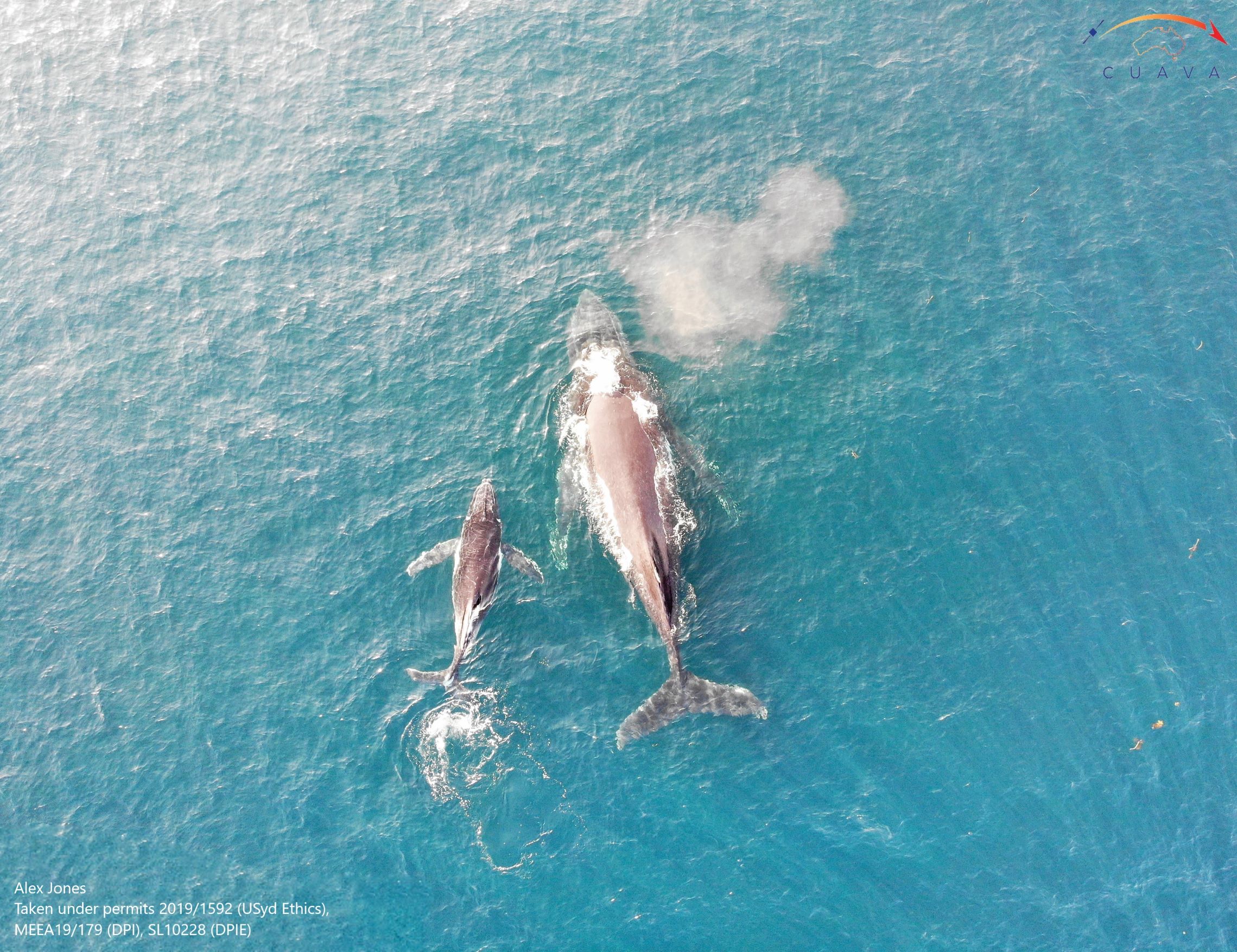CUAVA researchers Eleanor Bruce, Alex Jones, KC Wong and Kevin Davies in collaboration with DST researcher Doug Cato (DST), Tomonori Hu (NSW Smart Sensing Network), industry partner Paul Barber (ArborCarbon), Elaine Baker (MSI) and Scott Sheehan (MMR), have recently received funding to solve a challenge posed by the Government’s Business Research and Innovation Initiative (BRII) to automate the detection of whales at sea.
The BRII grant funding will be used to demonstrate the feasibility of translating leading edge CUAVA research on thermal sensing, whale behaviour, machine learning and robotic engineering into tangible solutions for improving whale detection at sea and advancing Australian expertise and industry capabilities in these technologies. The project, managed by Edwina Tanner from Earth Ocean and Space (EO&S), aims to develop a new and innovative technology that can be deployed on a vessel to provide automated and real-time detection of whales. This is of particular interest for use on seismic vessels which emit potentially harmful sounds into the ocean.
Currently the detection of whales at sea is reliant on highly trained onboard observers who are only able to survey during daylight hours. Accurate detection of whales at night and under poor visibility is a key issue that is lacking a viable solution. Improving round-the-clock detection rates will minimise potential harm to whales from vessel sound and potential collision.
Evaluating the potential for scaling up of these integrated sensor systems places the group in a unique position to commercialise existing research and develop marine smart sensors for pre-emptive response. This provides an exciting opportunity for the outcomes of CUAVA PhD student Alex Jones’ research to have direct impact on innovative technologies for sustainable use of the marine environment.






